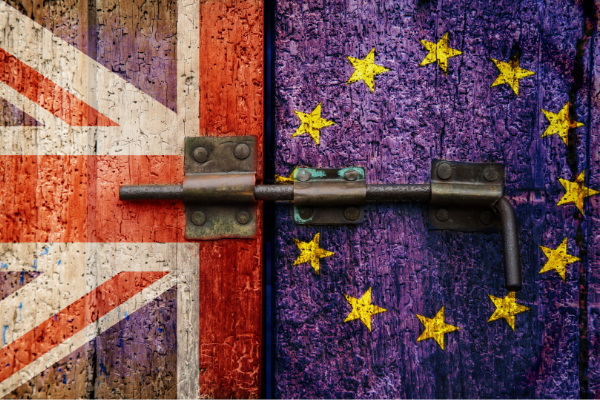BY:
SHARE:

Buying on Ex-Works Terms from Europe in a post-Brexit UK. The definition of Exporter according to Article 1(19) UCC.
With the UK being a third country, Ex-Works has become a more challenging Incoterm for international trade. However, it is still widely used.
What are the implications of Ex-Works in a contract between a selling company in Italy and a purchasing company in the UK?
Under Ex-Works, the selling company is not responsible for the export formalities. The buying company would have to arrange to collect the goods in Italy and export the goods from the territory of the EU.
The Definition of “Exporter” as per ARTICLE 1 (19) Union Customs Code Delegated Acts and the additional EU guidance on the definition of Exporter, which can be found here state that
when not a private individual, the Exporter must be a business
- Established in the EU
- With the power and right to take the goods out of the EU
When the UK was part of the EU, a UK company could have legally met the requirements to act as the exporter. Today, unless separately established in the EU, the UK company does not have any legal rights to act as the exporter of the goods from the EU.
Therefore, the question is: who will act as the exporter in a contract under Ex-Works negotiated between a UK buyer and an EU seller?
The revisions made to Article 1(19) make it easier for the carrier, or a freight forwarder, to act as the Exporter for customs purposes.
Naturally, the carrier must meet the definition of Exporter (EU-established and empowered) and be a party to the contract of transport, which require the carrier to have the necessary agreements in place with the selling companies or with the purchasing party.
Most importantly, the carrier must be comfortable in taking this responsibility.
The transport contract would give the carrier the power to determine that the goods are to be taken out of the customs territory of the EU. Clearly not all carriers are happy to take that responsibility onboard. Being the exporter of record can add additional liability and can create other issues when there are certificates required or licence controls to support the export, or other regimes such as transit involved.
As always, choosing the right Incoterms® 2020 rule is a key factor in international (and national) negotiations between buyers and sellers. Since the UK is now a 3rd country to the EU, when contracts are negotiated on an Ex-Works basis, the UK company will necessarily need a 3rd party – established in the EU - to act as the exporter. For contracts negotiated on any other Incoterms® 2020 rule, the sellers should be dealing with the export formalities.
The legal framework used for this analysis is the Definition of “Exporter” as per ARTICLE 1 (19) UCC DA and the additional EU guidance on the definition of Exporter, which can be found here https://ec.europa.eu/taxation_customs/document/download/468590f1-6210-428c-81be-ab662c95f4c4_en
While you are here you may be interested in some Strong & Herd LLP training courses related to this topic, we offer a wide range of high quality training courses to support all importing and exporting activities.
OneCall™ Email assistance as and when required; A one-call solution for all your import, export and customs enquiries. Export help. Import help. Customs help.
Stay informed about customs and international trade matters by subscribing to our OneCall™ service. This comprehensive offering includes a dedicated email helpline for support, timely practical updates direct to your inbox (Did You Know?), monthly UK Customs & Trade Briefings and access to an interactive members' area with an exclusive community for our subscribers.
International Trade Updates & Spotlight Newsletter
Subscribe to our free information emails covering international trade topics...
MORE INDUSTRY INSIGHTS...









